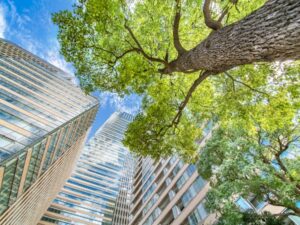The rapid growth of the “fast-furniture” industry to the often-hazardous impacts of paint on the environment, the “home sector;” encompassing construction, décor and design, have had increased pressure to improve its performance in terms of sustainability.
According to GreenCape’s Waste Market Report, approximately 5.36 million tons of builders’ rubble was generated in South Africa (SA) in 2017, alerting the members of the construction and décor industries. While the paint industry performed slightly better. In 2010, Health Minister, Dr Joe Phaahla announced that paint containing lead above a background level should be considered a Group II Hazardous substance in SA. In January 2021, the government banned lead known to be toxic and carcinogenic, as well as dangerous to the environment. Despite this positive shift, the country lags behind in comparison to other nations globally. Local companies in the construction and décor sectors have been urged to take heed of the growing call for environmental sustainability – a call issued from consumers and government alike. For instance, Universal Paints has removed lead from all its paint formulas long before legislation made it obligatory to do so. Universal Paints, supplies locally manufactured, quality guaranteed paint, developed by expert technical teams and is exclusively available from Universal Paints’ network of dedicated direct outlets. The company introduced a host of other processes to ensure greater sustainability. Terence Murray, Operations Executive at Universal Paints said, “Our factories are fitted with air filters to ensure that no dust particles enter the atmosphere. Added to this, the wastewater is treated at an effluent plant, where solids are removed and clarity restored before the water moves on for further treatment at municipal water works.”Universal Paints has also shifted its attention to Volatile Organic Compounds (VOCs), which are a threat to environmental and health issues. Murray said that Universal Paints’ water-based range falls within the minimal VOC level, according to guidelines set by REACH Regulations, which state that paint must contain less than 250g of VOC per litre to be considered safe.
“Our water-based paint falls well within this range, with VOCs tallying up at 0.003% to 2.000%, meaning that we have minimal to low VOCs,” Murray said. Simultaneously, the company has acknowledged the environmental and health risk posed by enamel paints and have developed a formula with the hard-wearing properties and durability that have made enamel paints popular, but with a lesser environmental impact. Another company that has taken lead in the initiative is DIYgirls – a Turkey interior design and manufacturing company that specialises in designs for residential and commercial spaces, including retail, lodges, and hotels across South Africa. Vinette Diab, Founder and CEO of DIYgirls said, “when considering sustainability, manufacturers need to think about what happens to their products after purchase: how will these items be disposed of eventually? Discarded items ultimately end up in landfills, which is why it is imperative to invest in products that will stay fresh, for longer.” “We choose eco-friendly fabrics that are restorative and regenerative. Many of these fabrics are produced from plastic waste that has been harvested from our ocean and beaches,” said Diab. “We understand that, as members of this industry, we bear a significant responsibility to educate consumers – not only informing them about more environmentally-conscious options but also steering them towards choices that will last longer, so that they can also play their part in reducing the industry’s environmental footprint,” she concluded.






